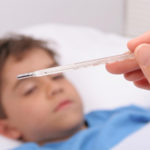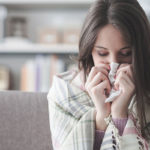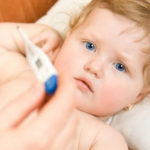High-Accuracy Oral Temperature Measurement System
This method is suitable for individuals aged older children and adults. To ensure accurate results, the person being measured should be able to safely hold the thermometer in their mouth, under their tongue until it produces a beep.
This method is not suitable for infants, as their mouth is too small to accommodate the thermometer.
Step 1: Select a Thermometer
Please utilize a reusable thermometer or an electronic oral thermometer. There are digital thermometers available that can be used rectally, orally, or under the armpit, as well as those specifically designed for oral use. Both types of thermometers provide accurate results. Electronic thermometers can be found at drug stores.
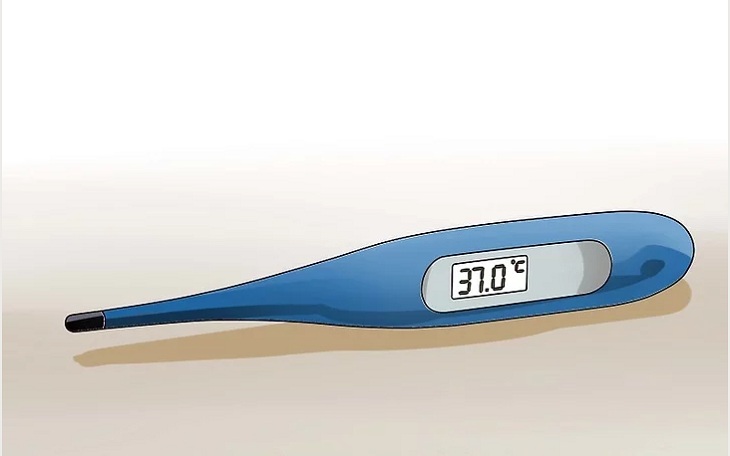
Please exercise caution when handling an old glass thermometer as it may contain mercury. In the event of breakage, mercury can be released, posing a potential health hazard if directly inhaled. This is particularly important to note for the safety of children.
Step 2:
Wait 20 minutes after bathing. Taking a warm bath can have an impact on your body temperature. To ensure the most precise reading, it is recommended to wait for a period of 20 minutes after bathing before taking a measurement.

Step 3: Prepare the thermometer probe
Wash hands using an alcohol-based soap and warm water. Afterwards, rinse with cold water and ensure thorough drying.
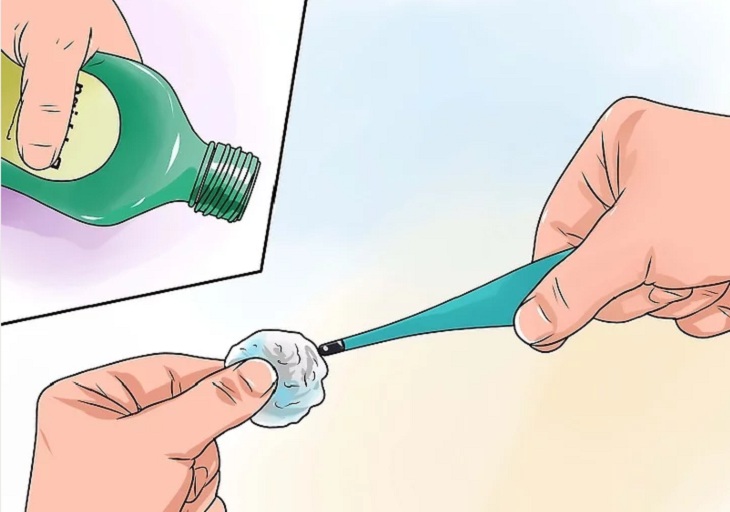
- Step 4: Activate the thermometer and gently position it beneath the tongue.
- Ensure that the probe is fully inserted into the mouth, specifically beneath the tongue, and not near the lips.
- Confirm that the blade of the thermometer entirely covers the probe.

- If you are using a thermometer for a young child, you have the option to either assist the child in using the thermometer or demonstrate the proper technique to them.
- Please refrain from moving the thermometer as little as possible.
Step 5: Remove the thermometer from the mouth after the beep sound. Observe the displayed temperature to determine if the individual has a fever. A temperature greater than 38 degrees Celsius is indicative of a fever, though there is no immediate need to seek medical attention unless the fever surpasses a specific threshold.
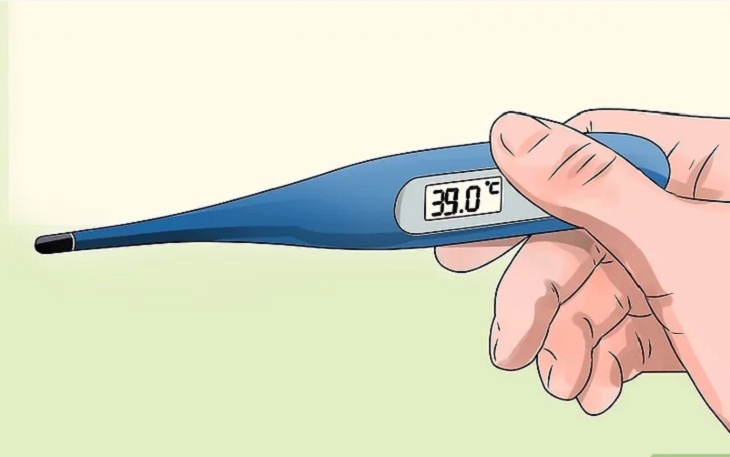
- For infants who are older than five months, it is advised to contact a doctor if their temperature reaches 38.3 degrees Celsius or higher.
- If you are an adult experiencing a fever, it is recommended to contact your healthcare provider when your temperature reaches 40 degrees Celsius or higher.
Step 6: Clean the thermometer by rinsing it with warm water and soap. Ensure it is dried completely before storing it for future use.
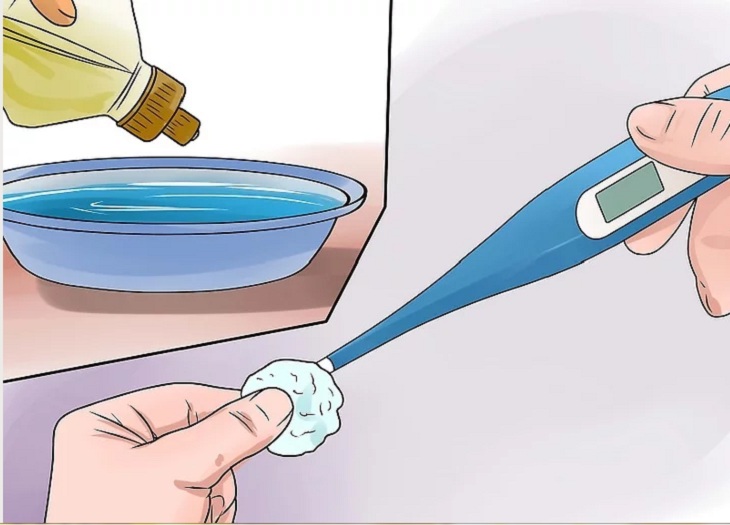
Measuring Temperature in the Armpit: 3 Techniques
This method is not as accurate as other methods of measuring temperature. Since external body temperature can vary significantly due to environmental factors, this method is less accurate than rectal or oral measurements.
The axillary temperature method provides a convenient and straightforward way to measure body temperature. However, for greater precision in your results, it is recommended to re-measure using either the oral or rectal method if the thermometer displays a temperature above 37.2 degrees Celsius.
If you are measuring the temperature of an infant, it is essential to use the rectal method. This method ensures accurate temperature measurement, which is crucial for monitoring the health of a newborn.
Step 1: Utilize a versatile electronic thermometer suitable for multiple functions. Opt for digital thermometers that can be used rectally, orally, or under the armpits. This allows you to initially measure the temperature in the armpit and, if it exceeds desired levels, explore alternative methods.
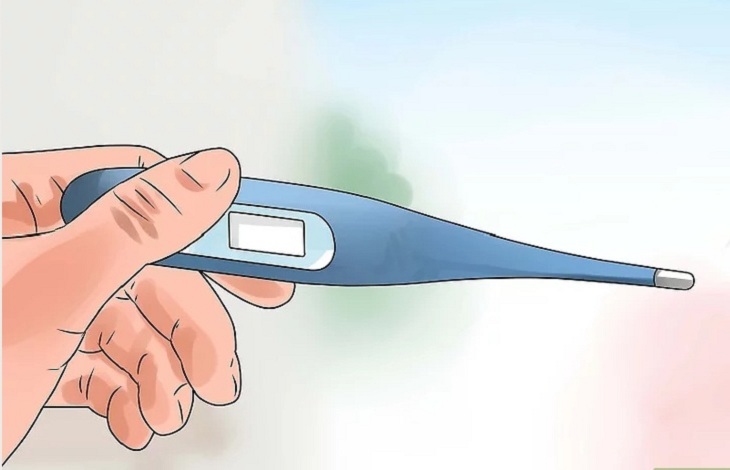
Step 2: Activate the thermometer and place it in the armpit. Lift your arm, insert the thermometer, and then lower your arm to ensure the tip is positioned at the center of your armpit. The entire tip of the thermometer should be covered.
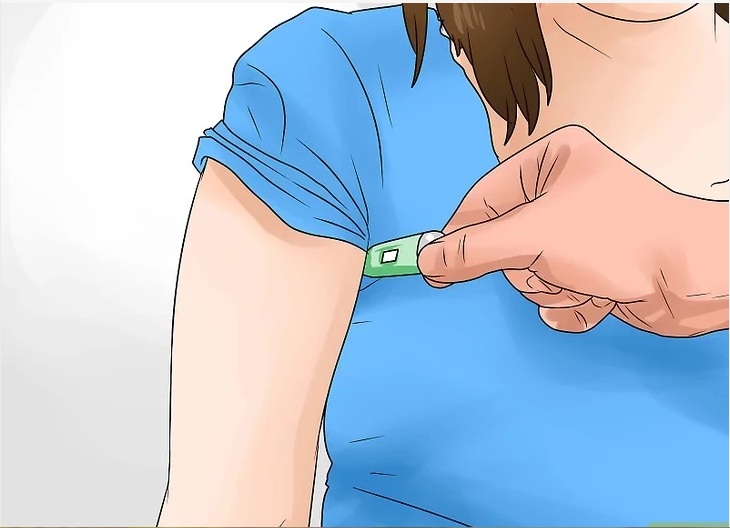
Step 3: Remove the thermometer after the beep sounds. Examine the display to determine if the individual has a fever.
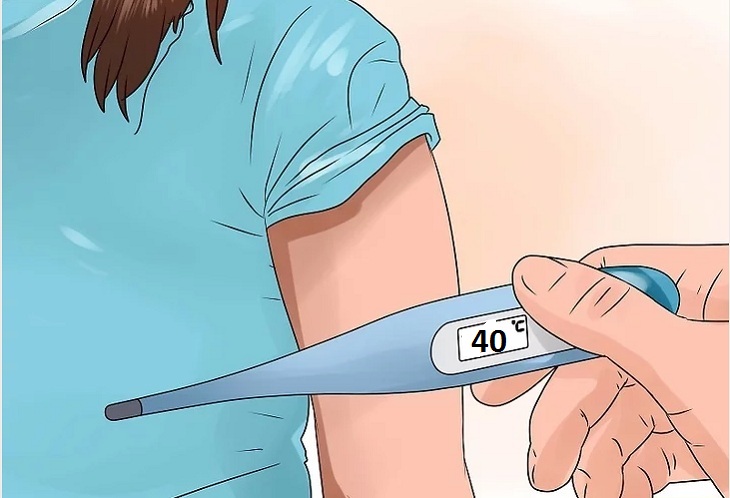
Step 4: Rinse the thermometer before storing
To ensure proper hygiene and maintain accurate readings, it is important to rinse the thermometer before storing it away.
Using warm water and soap, gently clean the thermometer and dry it thoroughly before storing it for future use.
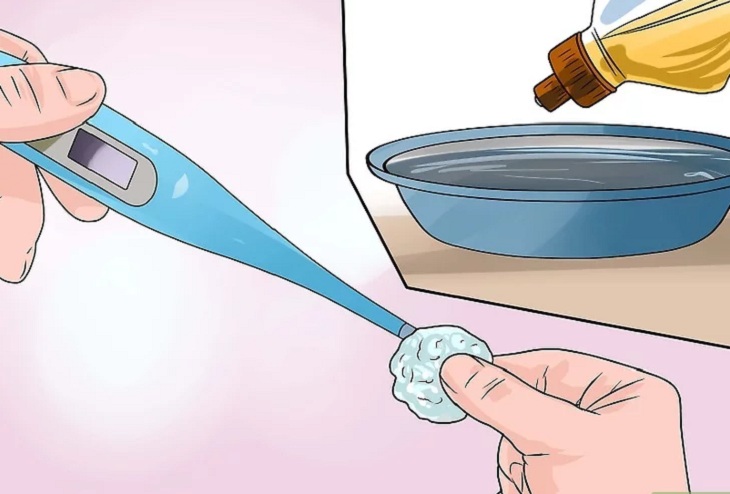
Checking for Fever with Rectal Temperature Measurement
Utilize this method specifically designed for infants. Taking a rectal temperature will yield the most precise results using this device.
Step 1:
Use a reusable thermometer or an electronic rectal thermometer. Some digital thermometers are designed for multiple uses (rectal, oral, or under the armpit), while others are specifically designed for rectal use. Both types of thermometers provide accurate results.
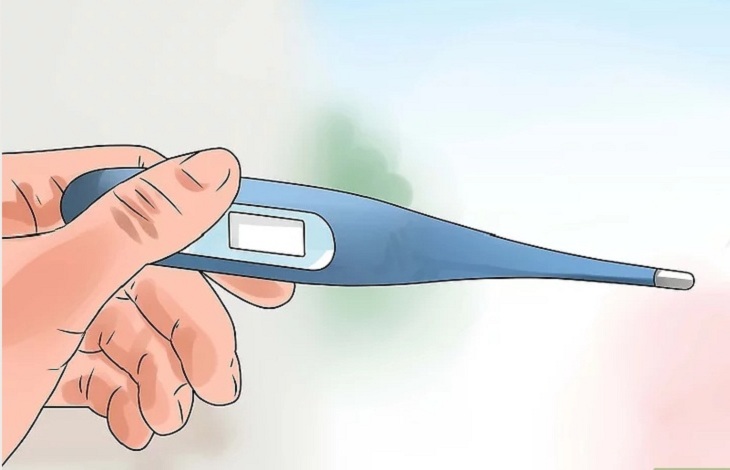
Please ensure that the thermometer you choose has a wide bar and a tip that is not too deep for insertion. These features will facilitate accurate measurements and minimize the risk of excessively deep insertion in the anus.
Step 2: Allow a 20-minute waiting period after bathing or cuddling your baby. The temperature of a baby can be affected by a warm bath or being held closely, so it is recommended to wait approximately 20 minutes in order to obtain the most accurate temperature reading possible.
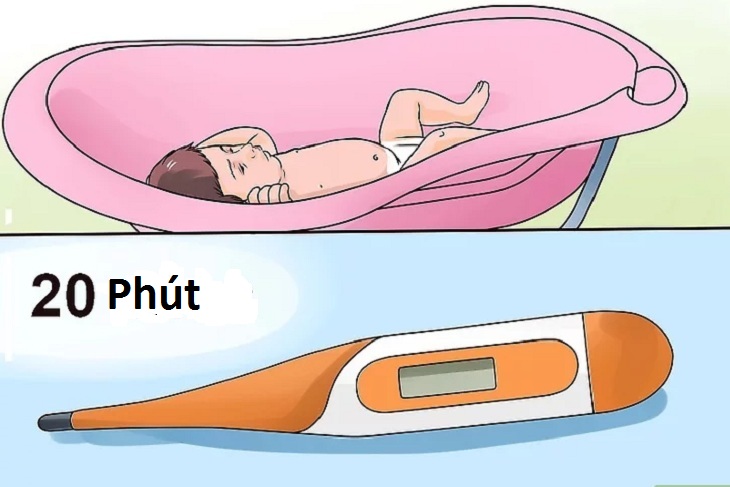
Step 3: Preparing the thermometer probe involves washing it with alcohol-based soap and warm water, followed by rinsing with cold water and thorough drying. Additionally, immersing the probe in lubricating oil can facilitate easier insertion.
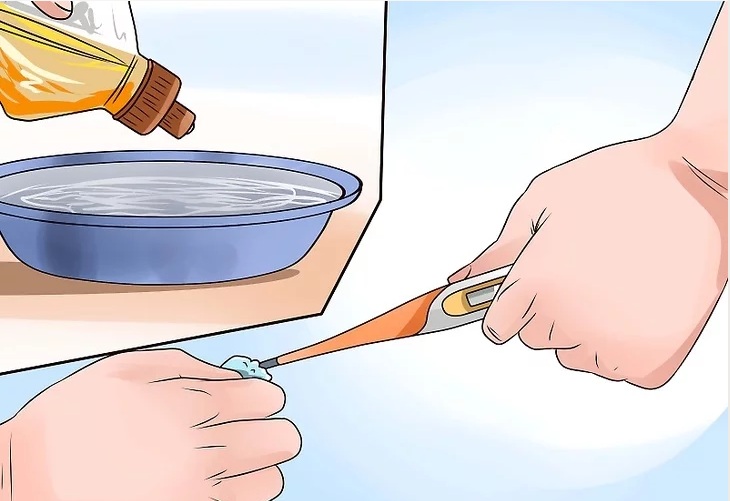
- Step 4: Place the baby in a comfortable lying position.
- Instructions: Lay your baby face down on your lap or on a firm surface. Choose the position that is most comfortable for your baby and allows you to easily insert the thermometer into their anus.
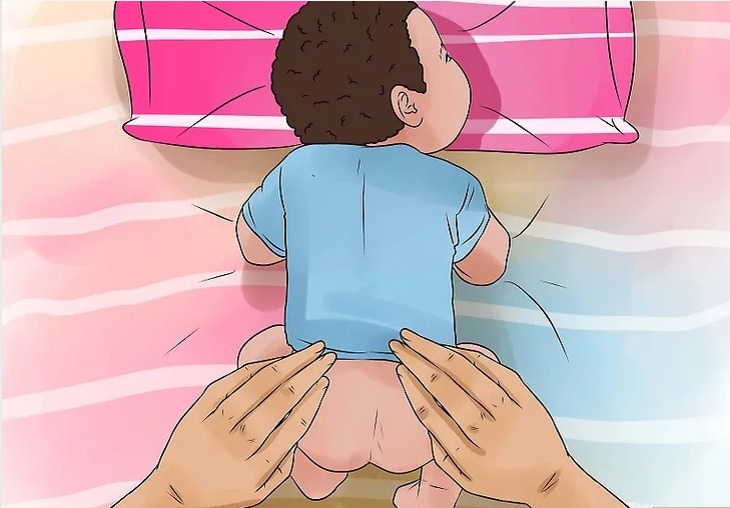
Step 5: Activate the thermometer. Locate the power button on your thermometer and press it to turn on the device. Allow a brief moment for the thermometer to reset itself.
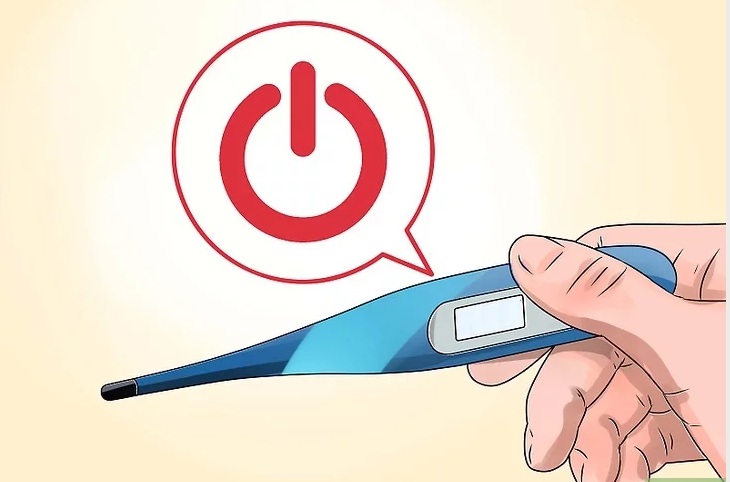
Step 6: Carefully prepare the baby by gently exposing their bottom and gently inserting the thermometer. Using one hand, gently spread the baby’s bottom open and with the other hand, insert the thermometer approximately 2cm. If you encounter any resistance, stop immediately to avoid any discomfort or harm to the baby.
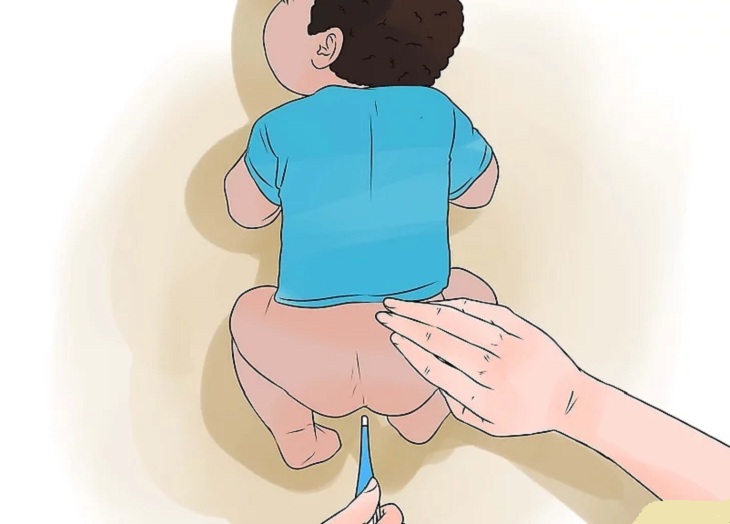
To ensure accurate temperature measurement for a baby, please follow these instructions:
– Securely hold the thermometer using your thumb and middle finger.
– Place your other hand gently but firmly on the baby’s bottom, ensuring the baby remains still during the measurement process.
Step 7: After hearing the beep, gently and cautiously remove the thermometer from the anus. Take note of the reading on the thermometer to determine whether your baby has a fever. A temperature of 38 degrees Celsius or higher is classified as a fever.

- If your baby is less than 5 months old, it is essential to contact a healthcare professional if their temperature reaches 38 degrees Celsius or higher.
- If your baby is older than 5 months, please contact the doctor if the temperature rises to 38.3 degrees Celsius or higher.
- If an individual is an adult and has a fever, it is advised to contact a doctor when the temperature reaches 40 degrees Celsius or higher.
Step 8:
Rinse the thermometer before storing it away. Clean the probe thoroughly using warm soapy water and rubbing alcohol.

This article provides three methods for accurately and effectively measuring a thermometer at home. By following these guidelines, you will be able to use your thermometer with confidence and accuracy in your daily routines.
The Risk of Underestimating Getting Caught in the Rain
No matter the weather, getting caught in the rain can be an unwelcome occurrence. While one may think that it’s no big deal, it’s important to take measures to get yourself dry and warm after such an experience. Don’t underestimate the effects of the rain – it can be more damaging than one may think.
Tips for Parents on Dealing with Common Ailments in Young Children
Winter can be a particularly hard time for little ones when it comes to keeping healthy. With the decrease in temperature and shorter days, minor illnesses that often affect children can start to present themselves. To ensure your child remains in good health and to learn how to tackle minor ailments efficiently, here are 10 tips for parents to take into consideration.


























